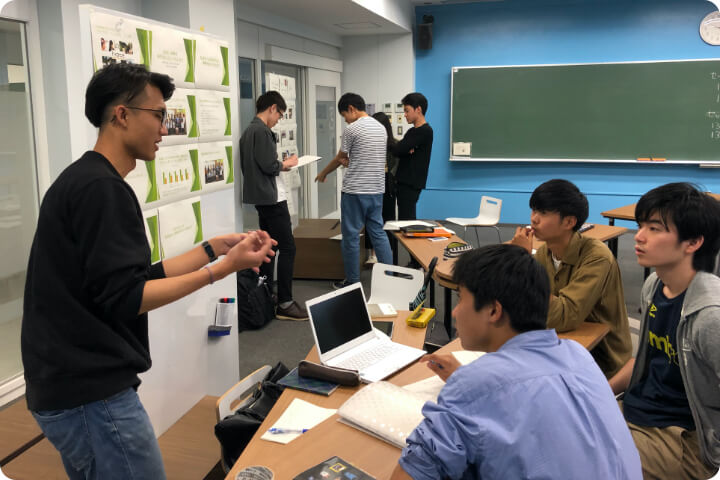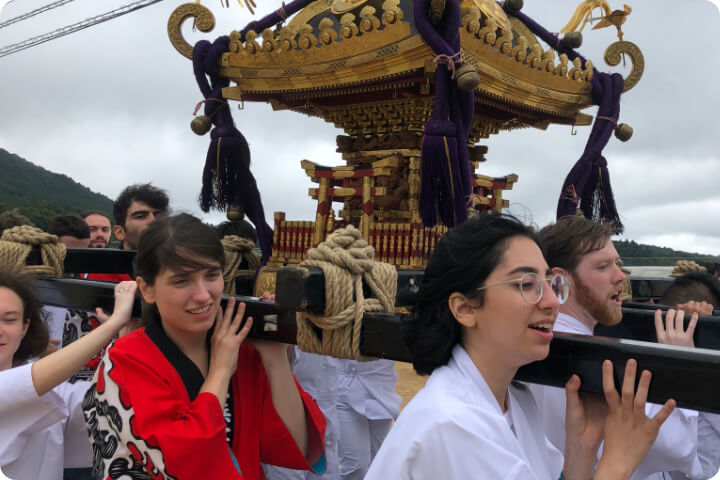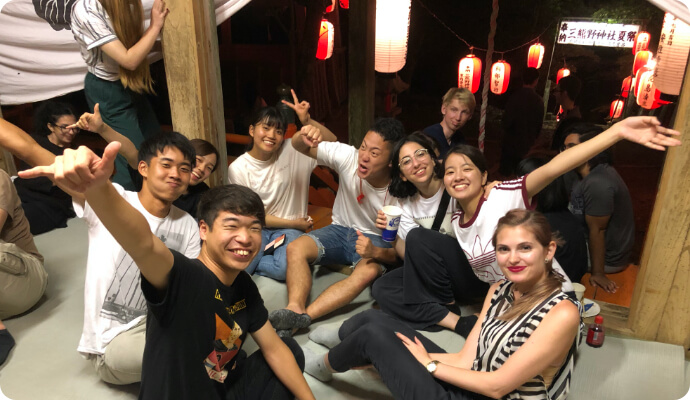What is Intercultural Collaborative Learning?
Intercultural Collaborative Learning, or ICL, aims to foster mutual understanding among students from different linguistic and cultural backgrounds through "meaningful interaction" in the form of collaborative learning experiences such as groupwork and projects. It simultaneously stimulates acceptance of others and introspection, resulting in an integrated process leading to the generation of new values.
This goes beyond merely gathering diverse students together to listen to lectures in the same classroom. By collaborating to achieve common goals, the learners develop the ability to voluntarily accept diversity while encountering active learning opportunities that encourage them to reassess their own value systems.
In short, the frequency and form of interactions between students varies depending on the learning context and goals. What all interactions share is that they are learner-centered, allowing participants to take ownership of their education through their exchanges with others (a process which functions as a resource for learning about cultural and linguistic diversity).
Those accustomed to studying as per the directions of an instructor may initially feel some confusion. However, thinking and acting independently are crucial in environments that incorporate diverse value systems and work styles. We hope that through ICL, students will come to recognize the importance of these things and take pride in their growth as independent learners.

Trends in ICL Overseas
There is a body of research from multicultural communities in America and Australia showing that studying together in diverse cultural environments is effective in helping learners to gain an understanding of their own and other cultures, broaden their perspectives, and improve their intercultural communication skills. There have also been education/ learning case studies on ICL from non-English speaking regions of the EU, such as the Netherlands and Germany, and from Asian countries including Singapore and Korea.
Types of ICL
In Japanese higher education, ICL was probably first implemented in the field of Japanese language learning. In many cases, Japanese students participated in classes for international students on "the state of Japan”; in other words, classes that dealt with themes such as current affairs, Japanese values, and cultural comparison.
From 2000 onwards, classes that employed ICL began to increase as an element of educational programs such as the "Global 30" Project for Establishing Core Universities for Internationalization (MEXT 2011-2015), and the Project for Promotion of Global Human Resource Development (MEXT 2013-2017). As part of an effort to internationalize Japanese universities and foster a global mindset among the participants, these programs implemented classes in which international and Japanese students used English as the common language.
In recent years, forms of ICL have diversified, and now include collaborations with regional communities and industries, cooperative learning with overseas partners, etc.

Encouraging ICL
In an age of increasing globalization, our world is becoming ever more interdependent and our various systems more complex. Communities in which people with greatly varying backgrounds, languages, and cultures cooperate and coexist are already emerging. Each individual must build a framework of empathy and mutual understanding with those they regard as "other," listen to them, and clearly communicate their own ideas. ICL provides opportunities to obtain the skills that are necessary in this global community.
©Global Learning Center, Tohoku University



